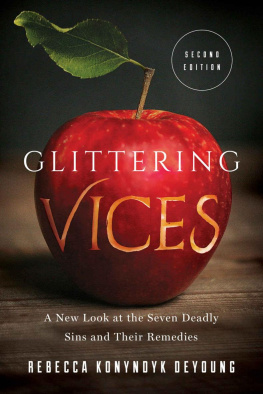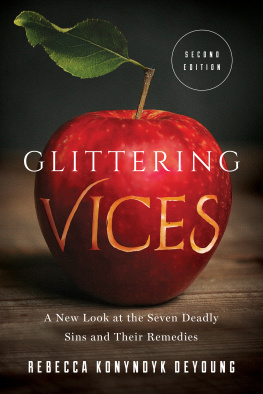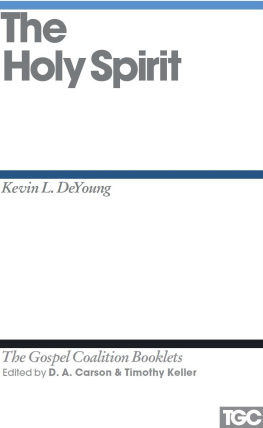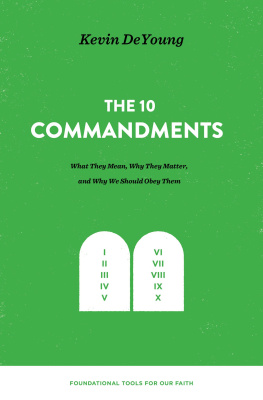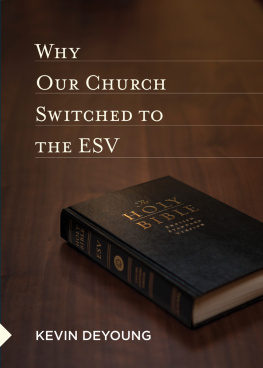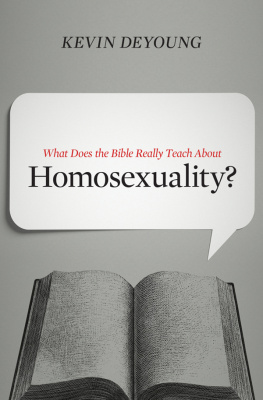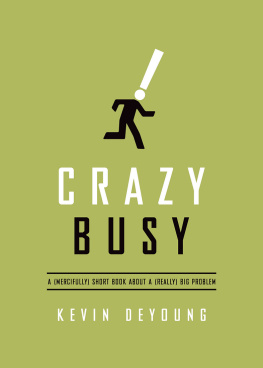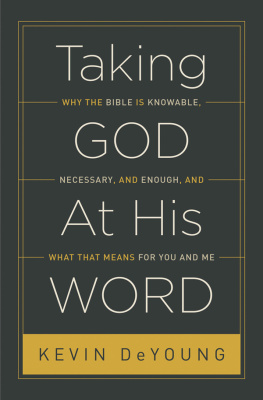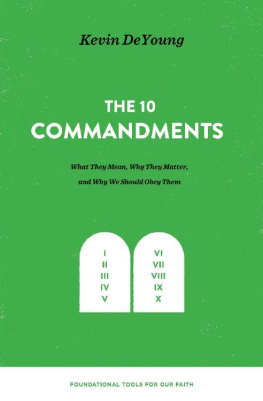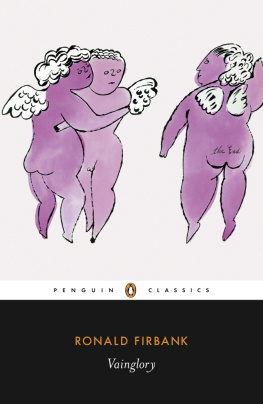Rebecca Konyndyk DeYoung - Vainglory
Here you can read online Rebecca Konyndyk DeYoung - Vainglory full text of the book (entire story) in english for free. Download pdf and epub, get meaning, cover and reviews about this ebook. year: 2014, publisher: Wm. B. Eerdmans Publishing Co., genre: Religion. Description of the work, (preface) as well as reviews are available. Best literature library LitArk.com created for fans of good reading and offers a wide selection of genres:
Romance novel
Science fiction
Adventure
Detective
Science
History
Home and family
Prose
Art
Politics
Computer
Non-fiction
Religion
Business
Children
Humor
Choose a favorite category and find really read worthwhile books. Enjoy immersion in the world of imagination, feel the emotions of the characters or learn something new for yourself, make an fascinating discovery.
- Book:Vainglory
- Author:
- Publisher:Wm. B. Eerdmans Publishing Co.
- Genre:
- Year:2014
- Rating:3 / 5
- Favourites:Add to favourites
- Your mark:
- 60
- 1
- 2
- 3
- 4
- 5
Vainglory: summary, description and annotation
We offer to read an annotation, description, summary or preface (depends on what the author of the book "Vainglory" wrote himself). If you haven't found the necessary information about the book — write in the comments, we will try to find it.
Vainglory — read online for free the complete book (whole text) full work
Below is the text of the book, divided by pages. System saving the place of the last page read, allows you to conveniently read the book "Vainglory" online for free, without having to search again every time where you left off. Put a bookmark, and you can go to the page where you finished reading at any time.
Font size:
Interval:
Bookmark:
Vainglory:
The Forgotten Vice
Rebecca Konyndyk DeYoung
William B. Eerdmans Publishing Company
Grand Rapids, Michigan / Cambridge, U.K.
2014 Rebecca Konyndyk DeYoung
All rights reserved
Published 2014 by
Wm. B. Eerdmans Publishing Co.
2140 Oak Industrial Drive N.E., Grand Rapids, Michigan 49505 /
P.O. Box , Cambridge CB PU U.K.
www.eerdmans.com
Printed in the United States of America
Library of Congress Cataloging-in-Publication Data
DeYoung, Rebecca Konyndyk.
Vainglory: the forgotten vice / Rebecca Konyndyk DeYoung.
pages cm
Includes bibliographical references.
isbn 978-0-8028-7129-9 (pbk.: alk. paper)
isbn 978-1-4674-4209-1 (ePub)
isbn 978-1-4674-4175-9 (Kindle)
. Pride and vanity.. Deadly sins. I. Title.
BV 4627 .PD 2014
. dc
2014031193
The author and publisher gratefully acknowledge permission to reprint Madeleine LEngles People in Glass Houses from The Ordering of Love, published by Waterbrook Press in 2005 and copyright 2005 by Crosswicks, Ltd.
Unless otherwise noted, the Scripture quotations in this publication are from the HOLY BIBLE: NEW INTERNATIONAL VERSION. Copyright 1973 , 1978 , 1984 by the International Bible Society. Used by permission of Zondervan Bible Publishers.
Contents
4. Honesty Required:
Hypocrisy and Habituation
6. Practices of Resistance,
Places of Encouragement
7. Sharing the Light:
Grace, Formation, and Community
This book is the fruit of many conversations and wisdom gathered from many sources throughout history. If it does nothing but pass along the wisdom of others in ways that we can appropriate in fresh ways today, writing it will have been worthwhile. There are more people to thank for that wisdom than I can fit on a single page, but I would be remiss not to mention those that I can.
I would like to thank Calvin College and Seminary for inviting me to give the 2010 Stob Lectures, which I have expanded into this book. Questions and suggestions from audiences at those lectures and other talks have importantly shaped what Ive written. I also received sabbatical funding from Calvin College, the Calvin Center for Christian Scholarship, and the Louisville Institute. This funding provided essential time to prepare the manuscript for publication. I am grateful to Gayle Boss for her meticulous work in helping me translate my academic prose into something more readable. Several colleagues and friends graciously took the time to read part or all of the manuscript at various stages, including Kevin Timpe, Mary VandenBerg, Lois Konyndyk, members of the Calvin College philosophy department, and my senior seminar students. I would also like to thank Jon Pott and Mary Hietbrink at Eerdmans for their editorial suggestions and their encouragement throughout the publication process.
Finally, I would like to thank the family and friends who have prayed for me and supported my work on this project. This book is dedicated to my husband, Scot, who models the sort of unselfconscious integrity that makes virtue winsome and vainglory easy to avoid.
Psalm
L ord , our Lord, how majestic is your name in all the earth!
You have set your glory above the heavens.
Through the praise of children and infants
you have established a stronghold against your enemies,
to silence the foe and the avenger.
When I consider your heavens, the work of your fingers,
the moon and the stars, which you have set in place,
what are mere mortals that you are mindful of them,
human beings that you care for them?
You have made them a little lower than the heavenly beings
and crowned them with glory and honor.
L ord , our Lord, how majestic is your name in all the earth!
Verses - and , tniv

The Tree of Vices from the psalter of Robert de Lisle, fourteenth century.
Used with permission of the British Library.
Youre so vain, you probably think this song is about you.
Carly Simon, Youre So Vain
I n October 2010 I delivered much of the material in this book as the Stob Lectures at Calvin College. Talking about vainglory quickly turned out to be an awkward project and not only because philosophers tend to be socially awkward people. It was also ethically awkward. Giving the talks meant I had to explain to my audience the ways in which the limelight and applause from other people bring certain spiritual risks. To do that, of course, I had to stand in front of my audience, right there in the limelight. I knew I could expect some applause at the end. How would I maintain any credibility if I lectured about how vainglory is a vice while vaingloriously enjoying the limelight and my audiences applause? On the other hand, if I didnt glory in their response to my lectures, how would my audience know that I was genuinely humble and not just putting on a false show of it? And what if I secretly hoped Id get glory for that? Whether I acted from virtue or vice, the trap of vainglory could snare me either way. It was almost impossible not to be paralyzed by the temptations all around me!
As the date of the lectures drew nearer, I pondered what to do about this. I wanted to give genuinely interesting and worthwhile talks. I also wanted to make a good impression and maintain my academic reputation (such as it is). So my motives were truly mixed. Should I admit that? I wasnt particularly eager to put my own moral faults on display by publicly exhibiting the very vice I was supposed to be warning my audiences about: See me? Im exhibit A. Which is a great reason to take me seriously, since I cant practice what I preach. Or should I fake total purity? I was sure I couldnt pull that off, and I wasnt excited about exposing my dark hypocritical side to my audience, either. Unfortunately, I can often be very comfortable about the gap between my walk and my talk as long as no one else gets to point it out to me in front of a very large audience.
I finally decided to handle my potential temptation by turning it to someone elses profit. I would offer my students who attended extra credit if they could catch me being vainglorious as I delivered the lectures. At the very least, I reasoned, it would be a useful diagnostic exercise for them! As someone once quipped, If you cant be a good example, at least you can serve as a horrible warning. But of course, if the students gloried in their remarkable ability to spot my vainglorious actions, they would join me in falling victim to the same vice.
Heres the real irony: a series of lectures on vainglory could serve as a horrible warning about the ways you can go wrong even when trying to be a good example. It doesnt take too long to see how tricky this vice can be to avoid, does it? My predicament put me in good company, however. Christian preacher and church father Saint Augustine ( - a.d. ) famously confesses his struggles with vainglory, too. Only you can decide whether it is reputation-enhancing for me to compare myself to a saint when hes committing and confessing his sins! If we all stand in danger of vainglory, however, our common task will be to figure out how to deal with this perennial human pitfall.
Masters of the Art of Fame
Vainglory may be an unfamiliar and archaic name for a vice, but the problem it names is familiar enough. And its good to have a label for it, because the concept of vainglory is worth putting back in our conceptual toolbox. Its a temptation as pressing and relevant today as it ever was. And in this instance, that ever goes back a long, long way.
Vainglory was on the original list of the deadly sins a list of vices first compiled over 1600 years ago. The list of seven has recently become familiar again. Twenty years ago, most Protestant college students couldnt name more than one or two of the deadly sins, if they had even heard of them at all. The only people who could rattle off all seven were Catholic kids drilled in catechism class. Now there are all sorts of references to the seven deadly sins in popular culture. Harpers magazine did a terrifically funny spoof on the sins in 1987 in which Madison Avenue ad agencies were asked to create advertisements for each of the seven. (The ad on greed featured advice from Santa.) MTV did an hour-long special on the vices in 1993 , interviewing people like Queen Latifah and Kirstie Alley, and the History Channel ran a series in 2010 , complete with low-budget fire-and-brimstone sound effects. Thanks to the star power of Brad Pitt and Morgan Freeman in the hit movie Se en, the seven deadlies have recaptivated the American popular imagination. Kansas State University researchers created a color-coded map of each state according to how sinful it was, and everything from Dr. Seuss to SpongeBob Squarepants characters have been analyzed by the vices they represent. A Google search on seven deadly sins turns up Web sites selling t-shirts, posters, and even color-coded wristbands, so that you can flaunt your fatal flaws. Youll also find articles about the seven deadly sins of home remodeling. Theres even a Seven Deadly Sins board game which requires you to sin to win. And if you do win, you can toast your victory with a bottle of wine called The Seven Deadly Zins (yes, a Zinfandel). The Web site for the wine offers you a drinking song and tips on how to commit gluttony too by pairing your wine with delectable chocolate desserts.
Next pageFont size:
Interval:
Bookmark:
Similar books «Vainglory»
Look at similar books to Vainglory. We have selected literature similar in name and meaning in the hope of providing readers with more options to find new, interesting, not yet read works.
Discussion, reviews of the book Vainglory and just readers' own opinions. Leave your comments, write what you think about the work, its meaning or the main characters. Specify what exactly you liked and what you didn't like, and why you think so.


